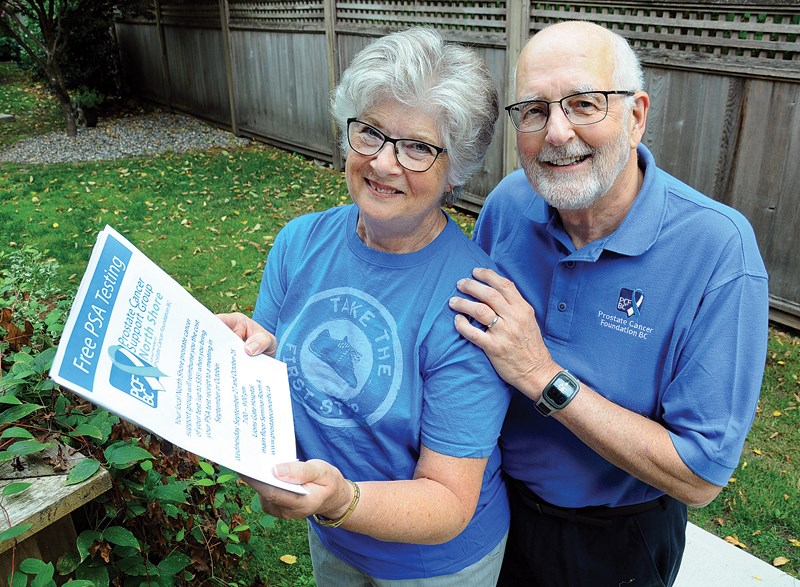There are approximately 90,000 men living on the North Shore. Nearly 13,000 will likely be diagnosed with prostate cancer in their lifetime.
In an effort to make sure those men are screened early and treated swiftly, Prostate Cancer Foundation B.C. is offering a $35 reimbursement for PSA tests until Oct. 25.
The Prostate-Specific Antigen test scans the blood in search of a protein that can originate from cancerous tissue in the prostate.
While there are a few factors to consider, including family history, all men should get a PSA test once they hit 50, according to Ted Butterfield, the head of the North Shore Prostate Cancer Support Group.
Even if they feel entirely health, a PSA is still a good idea to establish a baseline against which future test results can be gauged, Butterfield explains.
If PSA levels jump from one year to the next, it might be an indicator there’s something to be concerned about, he says.
While incidences of prostate cancer have generally declined since a peak in 2001, there are still challenges in convincing men to get screened, according to Butterfield.
“One of the challenges of prostate cancer (is) there’s no serious symptoms . . . particularly at a young age,” he says.
While difficulty urinating can be indicative of an enlarged prostate, the symptoms are “usually unrecognizable,” according to Prostate Cancer Foundation B.C. The cause is also unknown, although genetics, a high-fat diet and a lack of exercise “may play a role,” according to PCFBC. The risk is also heightened for men of Caribbean or African descent.
There’s also a psychological barrier, as some men are, “very reticent to talk about that sort of thing,” Butterfield notes.
“The difficulty is if you tough it out . . . prostate cancer can kind of get away on you,” he says.
To be reimbursed for the cost of the screening, patients must bring their receipt to a prostate cancer support group meeting. The next two get-togethers are set for 7 p.m. in Room A on the main floor of the Lions Gate Hospital across from the gift shop on Sept. 27 and Oct. 25.
“This is to encourage them to at least find out what a support group is about,” Butterfield says. “We look at a support group . . . as a place for a man to come and find out that there’s lots of us around that are dealing with prostate cancer.”
Approximately 14 per cent of Canadian men are diagnosed with cancer in their lifetime, according to the Canadian Cancer Society. The support group lends men a feeling of solidarity at a difficult time, Butterfield explains.
“You’re not just alone on this journey.”
Butterfield became involved with the support group shortly after his prostate cancer required surgery in 2002.
“I wanted to learn as much as I could about the disease and so I got actively involved,” he said.
The groups offer emotional and practical support, Butterfield says.
Next Wednesday, a physiotherapist is slated walk the group through a range of Kegel exercises designed to assuage the loss of urinary control experienced by some men following surgery.
The September/October campaign is intended to make men and their partners more aware of the risks of prostate cancer, according to Butterfield.
“It does effect the family as well as the man himself.”
Prostate cancer generally afflicts men as young as 45, with incidences of cancer increasing with age.
Men have the best chance for survival if the cancer is detected while still confined to the prostate, according to PCFBC.



